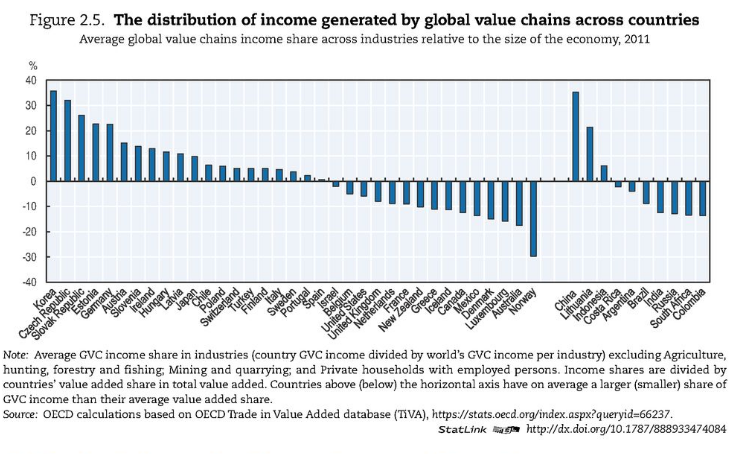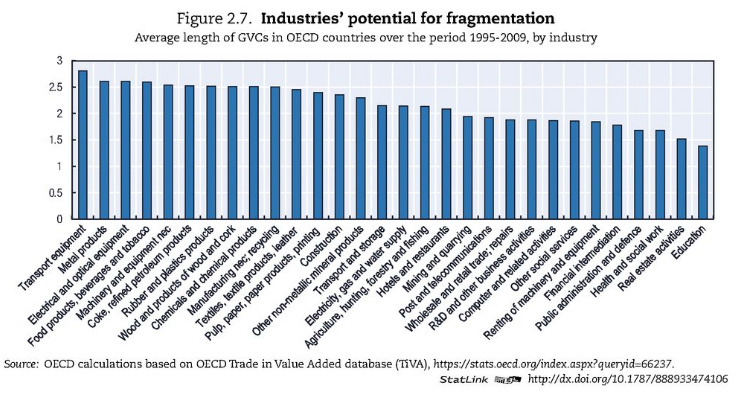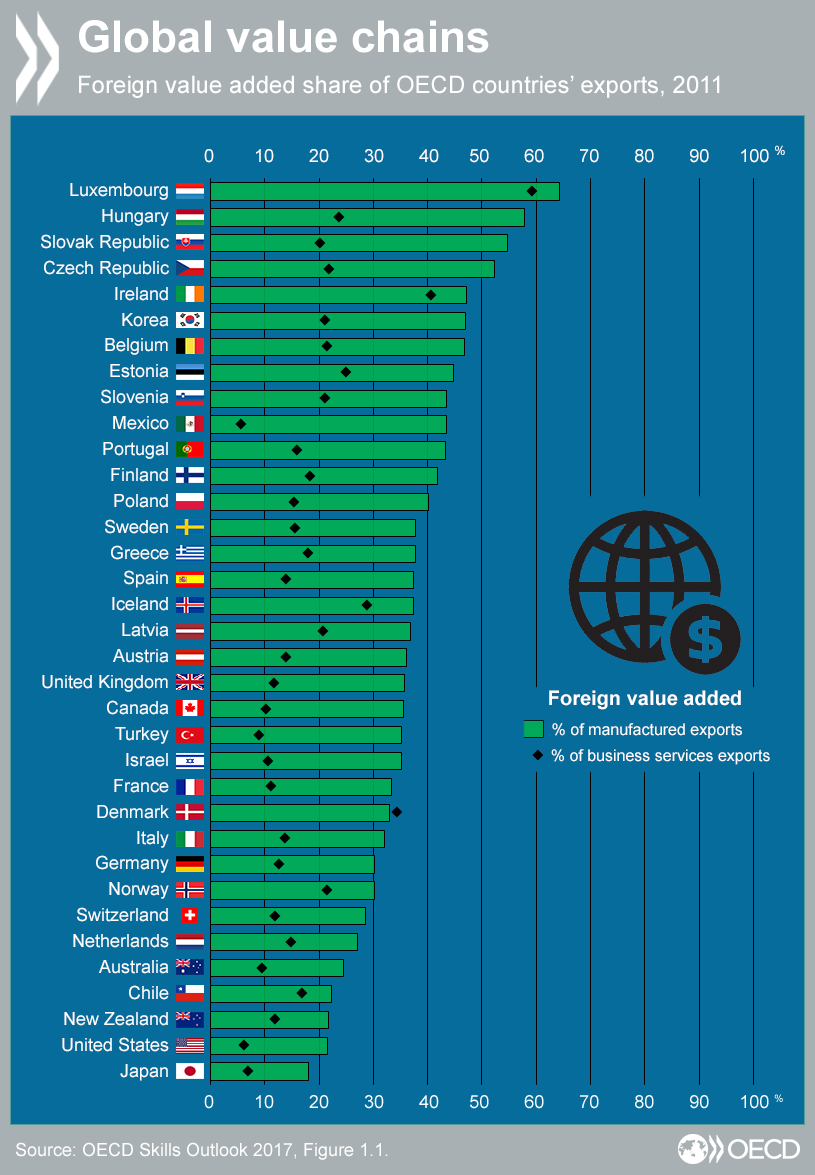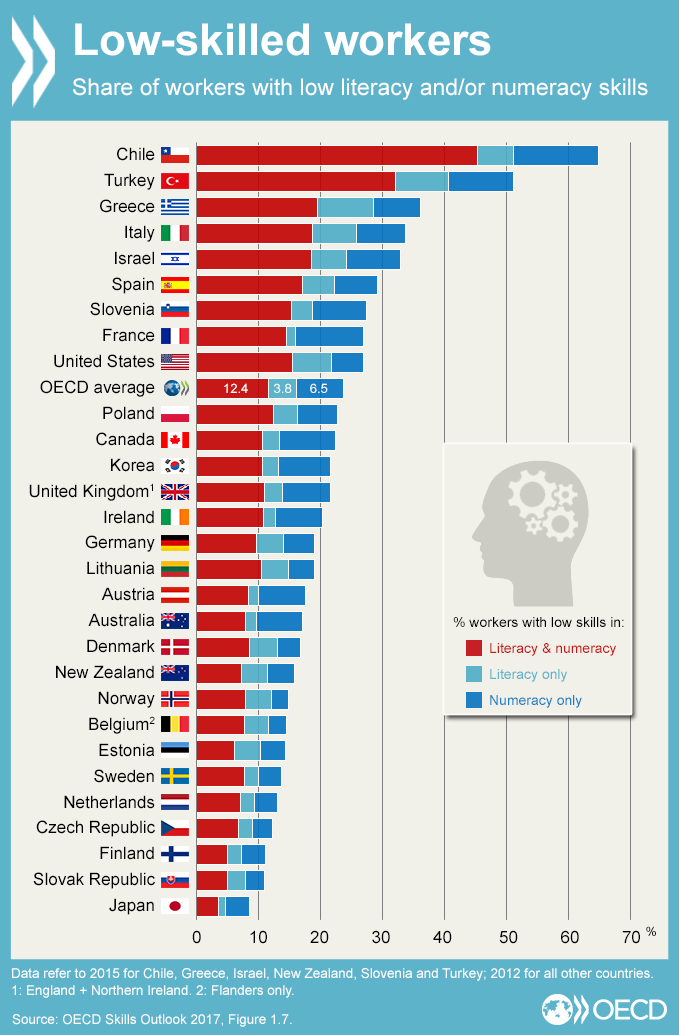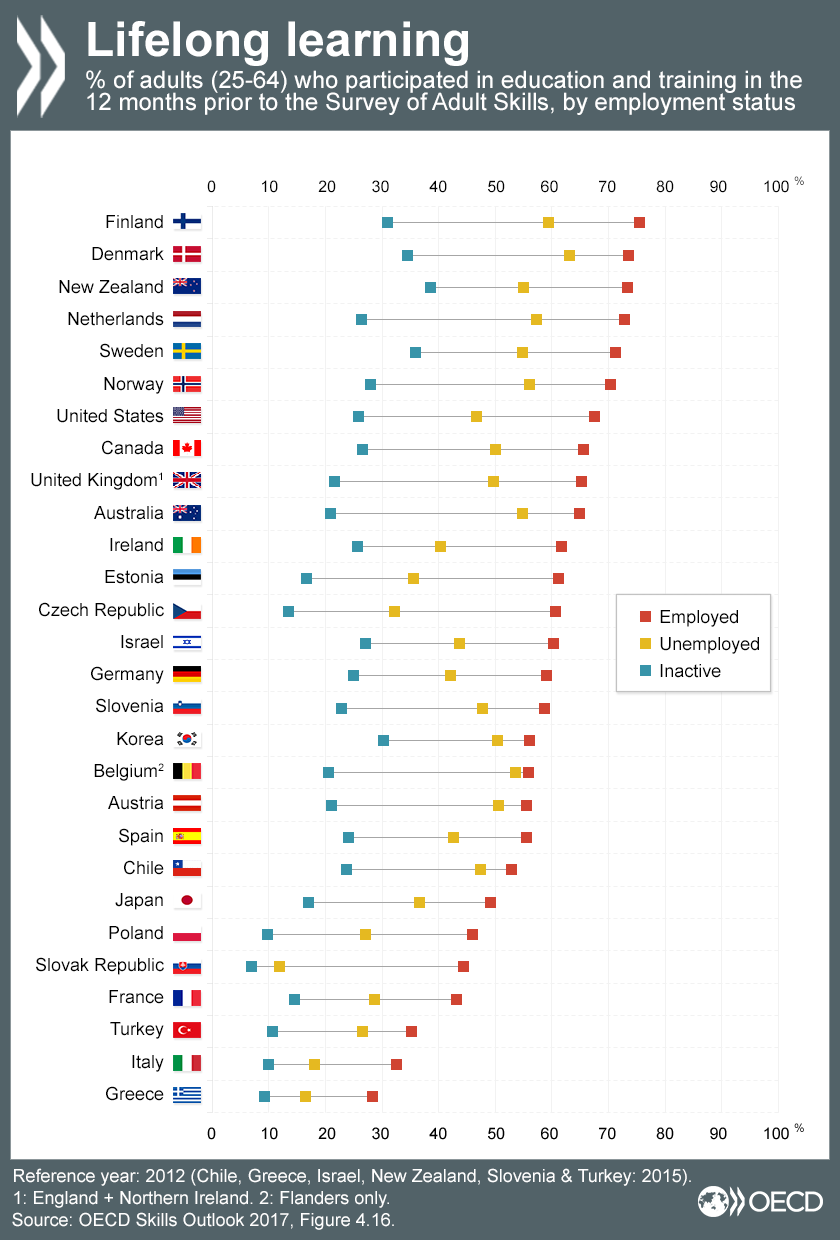
On average, in OECD countries, close to 40% of the value of manufactureed exports and 20% of the value of business services exports comes from abroad, OECD says in its latest Skills Outlook. The Czech Republic has the fourth largest foreign value-added share of manufactured exports (see infographics below).
Global value chains (GVCs) give workers the opportunity to apply their skills all around the world without moving countries, the report says. At the same time, the demand for some skills drops as activities are offshored, exposing workers to wage reductions or job losses in the short term. In the long term, however, offshoring enables firms to reorganise and achieve productivity gains that can lead to job creation.
The development of GVCs is uncertain. Digitalisation could enable further fragmentation of production. On the other hand, technological innovations such as automation could stimulate renewed localisation of production in advanced countries, especially if policies enable this.
According to OECD's Scoreboard on skills and global value chains, the Czech Republic reaches average level at
- a limited share of low-skilled people
- developing skills to face the challenges of GVCs
- skills to specialize in technologically advanced industries
- increasing employment
- improving social outcomes
The country finds itself among the top 25% of OECD countries for Increasing specialisation in technologically advanced industries and Increasing productivity, and among bottom 25% of OECD countries for Increasing participation in global value chains.
The Czech Republic, Japan, the Netherlands and the Slovak Republic show a small dispersion of the skills of individuals with similar characteristics, helping them to provide pools of workers performing at the expected level. Some countries (the Czech Republic, Estonia, Japan, Korea and New Zealand) have incresed their specialisations in technologically advanced industries, and in most cases, this is supported by their skills characteristics.
Skills mix in the Czech Republic, and similarly Japan, Korea, Poland and Slovenia, a comparative trade advantage in many complex business services industries, including computer and related activities, and finance and insurance, as well as some high-technology mnanufacturing industries like chemicals and computer products, and in business services, chamicals high-tech manufacturing, as well as in low-tech industries like paper products.
Read the report.
Infographic: Source: OECD Skills Outlook

